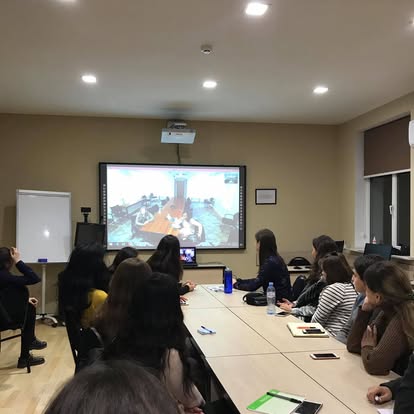Over the last several years, the development of artificial intelligence (AI) and, more recently, the advent of generative AI have led to much soul-searching and policy-making on the part of academic institutions. What role should AI play in education, and how can it be incorporated effectively into university-level teaching and learning?
AI translation and other types of cross-language technologies constitute a particular subcategory of AI, and they can potentially be used by those whose academic work is not confined to learning or functioning in a single and/or first language. Like AI more generally, language technologies have the potential to assist in teaching and learning, for example of a foreign language, but they might also hinder the full mastery by students of the grammar, vocabulary and other critical aspects of a new linguistic system.
Bard College faculty are currently grappling with the impacts of generative AI on both student learning and their own teaching. The tips and resources around AI that have been provided to Bard faculty by the administration make two important observations – that specific data around how Bard students are using AI is “sparse”; and, that it is nonetheless clear that its use among students “is increasingly perceived as normal.”
Our project, “AI Language Technologies and Cross-Language Learning,” aims to fill some of the knowledge gaps that currently exist about Bard students and their use and views of AI technologies, specifically those that can assist students working across languages.

To this end, a group of Bard College students, with faculty and staff guidance, is investigating both the attitudes and practices around the use of language technologies in academic activities on campus. They will focus on the experiences of: 1) international and other students at Bard whose first language is not English; and 2) domestic students pursuing the study of diverse foreign languages offered through Bard classes.
Through qualitative one-on one interviews, which will subsequently be transcribed and analyzed, student researchers seek:
- to elucidate how students are already using translation and other forms of cross-language AI in their regular coursework (if they are speakers of English as a second language) or their foreign language studies (if they are first-language English speakers);
- to articulate when students feel the use of such technologies is appropriate and under which circumstances it might be perceived as “out-of-bounds” or counter-productive; and
- to understand student perceptions around how language technologies might impact their learning experiences and outcomes as well as evaluation of their academic performance by faculty.
The research team will include students working for the Bard Center for Foreign Languages and Cultures as well as those associated with Bard’s Language, Culture and Justice Hub. The team’s work will be overseen by Hub coordinator Dr. Leigh Swigart, Language Center Academic Director Stephanie Kufner, Associate Professor of Anthropology Laura Kunreuther,and Assistant Professor of Computer Sciences Theresa Law.
Project findings will be presented in a publicly accessible report.
Our hope is that this study will bring about a better understanding of where the Bard community stands in relation to translation AI and other cross-language technologies. Such an understanding could subsequently assist the College as it shapes effective and fair policy around AI technologies in the years to come.
